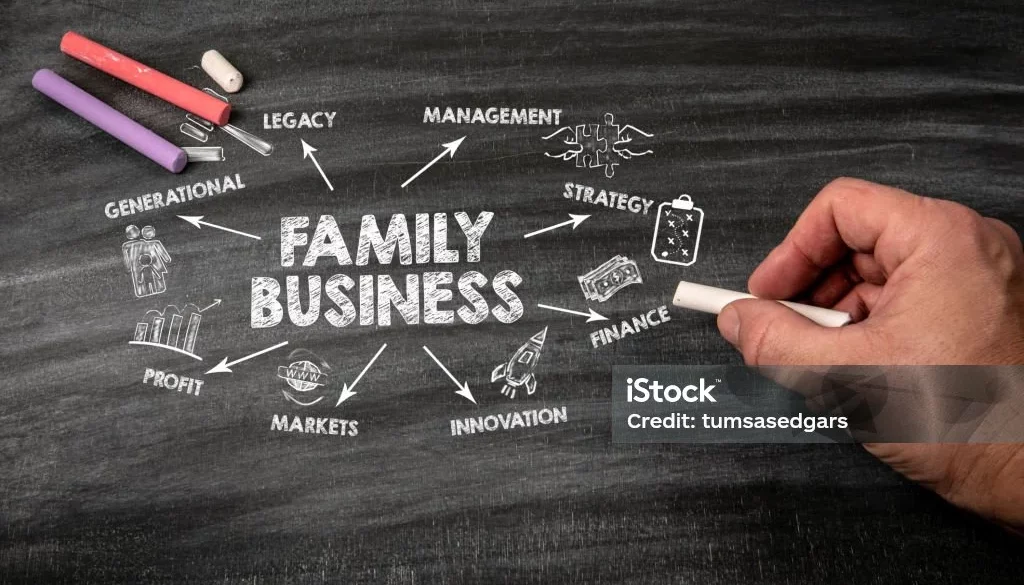
In this article you will learn
The advantages and challenges of starting a business with friends or family members.
The importance of open communication in maintaining successful personal and professional relationships within the business partnership.
Tips for managing personal connections while working together.
Strategies for addressing conflicts within a family or friend-run business while preserving relationships.
Insights into maintaining a healthy work-life balance when personal and professional lives are intertwined.
The necessity of having a clear exit strategy to protect both personal relationships and the business in case the partnership doesn't work out.
Owning a business with people you love can be hard!
IdeaFloat was created by my two sons, Jonathan and Anthony and me, so we have personal and professional experience on this topic . After running our own individual businesses, worked in corporates and NFPs, we had enough work/life experience to know that their would be upsides and downsides to working together. Our fundamental ‘go to’ position when starting out was… “Whatever happens, family comes first”. So any conflict between business and family would be sorted pretty quickly.

The Upsides:
- Shared Vision and Trust: Starting a business with friends or family often means you share a common vision and a deep level of trust. This alignment can lead to a strong, cohesive team with a unified purpose.
- Complementary Skills: Friends or family members should bring complementary skills to the table, enhancing the overall capabilities of the team.
- Loyalty and Commitment: Personal relationships often come with a higher level of commitment and dedication to the business's success than a typical boss-employee relationship.
- Flexibility and Understanding: There may be more flexibility when working with friends or family, allowing for a better work-life balance and mutual understanding of personal commitments.
- Or, always catch up with a beer when you can -- and don't talk about work!
The Downsides:
- Strained Relationships: Mixing business and personal relationships can lead to conflicts that strain even the closest bonds. Disagreements in the business realm can affect personal dynamics.
Blurred Boundaries: It can be challenging to maintain a clear separation between work and personal life, potentially leading to burnout or resentment.
- Conflict Resolution: Resolving conflicts within the business can be emotionally charged and difficult, leading to prolonged disputes or damaged relationships.
- Complacency: A sense of familiarity with friends or family may result in complacency or a lack of accountability in the business.
Unequal Contributions: Differences in contributions or work ethics can create tension, especially if it seems like one member is carrying more of the load.
- At IdeaFloat, we found this has been an issue from time to time, depending on the type/volume of work and our various roles. Once again, an ‘open and honest communication’ approach is critical to addressing these tensions.
Tips for Success:
- Clear Roles and Responsibilities: Follow traditional business practices and clearly define roles & responsibilities for each team member. Make sure everyone understands their specific duties and contributions.
- Effective Communication: Have regular meetings to track/manage the business and deal with any challenges or conflicts. Open and honest communication is paramount.
- At IdeaFloat, we have a one day workshop every 3 months to checkpoint on progress, pain-points, tweak our 12 month plan and assess how we’re working together. Its a good forum to ‘clear the air’!
- Boundaries: Set clear boundaries between work and personal life. Create designated spaces for business discussions and personal conversations.
- Decision Making Processes : Clearly articulate the levels and types of decisions make to run the business. It might be worthwhile to consider developing a Decision Matrix, so that ‘operational decisions' can be make quickly by the right person and ‘strategic decisions’ are considered properly by the relevant stakeholders.
- Exit Strategy: Discuss and agree upon an exit strategy in case the partnership doesn't work out. This can help prevent or at least manage any lingering legal or personal issues.
Get the newest tips and tricks of starting your business!


